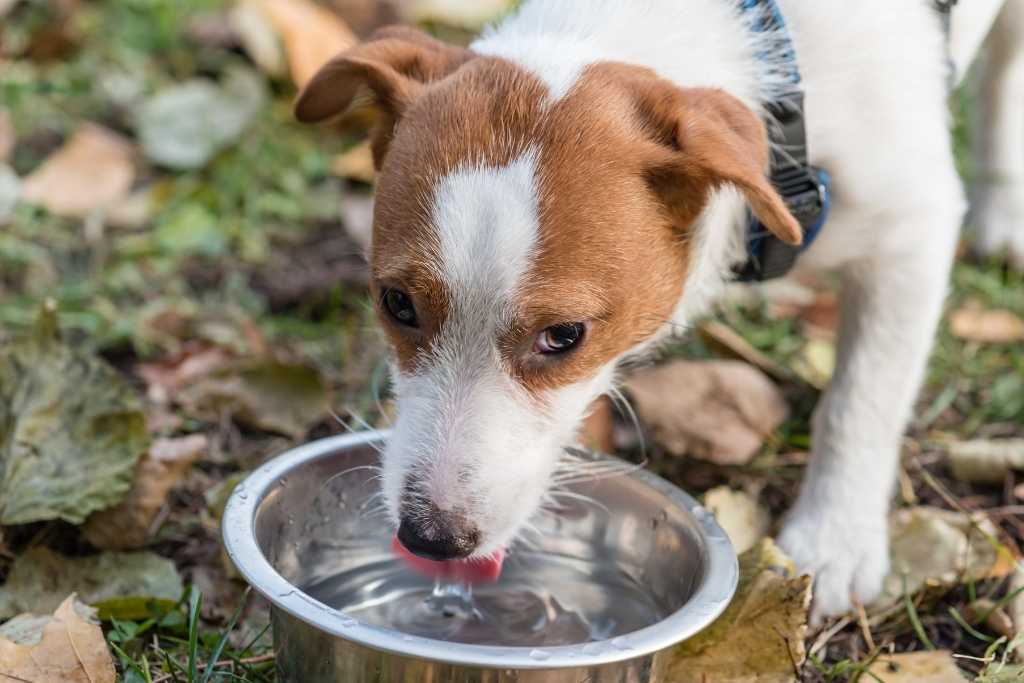MORE TO SHIP FREE 🚚
NICE. SHIPPING IS FREE 🎉
MORE TO REDEEM GIFT 🎁
YAY. REDEEM A FREE GIFT 🥳
YOUR CART IS EMPTY. SHOP NOW.
Like us, our pups suffer from stomach upset occasionally. Here’s some information about the causes and symptoms of upset stomachs in dogs, how to make your pup feel better, and when to visit the vet.

Many things can disrupt your dog’s digestive system and give them the “runs”, or less frequently, constipation. One common cause is they ate something they shouldn’t have.
Here are the 10 most common reasons for doggie diarrhoea.

Your dog is acting normally – still energetic, playful with a good appetite and no vomiting – you can attempt to treat your dog at home. For young puppies, senior dogs, or dogs with pre-existing health conditions, it is always best to consult your veterinarian. These dogs have lowered immunity, and an illness that starts as common diarrhoea can spiral into more serious health issues.
Plenty of rest
This is not the time to make your pooch run around the block. Just like us, dogs need plenty of rest when they are unwell. Give your dog a quiet and comfortable place for him to recover. You may want to move his favourite bed or set up a rest corner close to a door. This will make it easier for him to go outside when he has the “runs”. If your home does not have direct access to the outdoors, set up the rest corner at a place with an easy-to-clean floor for those unfortunate accidents.
Fasting
Fast your dog for 12 to 24 hours to allow his gastrointestinal tract to rest and recover. This means no treats, regular meals, snacks – food of any kind.
Before you decide on a fast, be sure that your dog is healthy enough to endure it. If your pup is weak or has a pre-existing health condition, please talk to your vet before attempting to fast or treat his diarrhoea at home.
After a fast, when the diarrhoea (and vomiting) has subsided offer simple, bland food. Offer in small amounts, 1 to 2 Tablespoons at a time, and monitor your dog’s condition. Increase the frequency of feeding if no diarrhoea occurs.

Here are some bland foods for upset stomachs.
Apart from bland food, there are over-the-counter remedies with kaolin that helps to absorb toxins in the gut and firm up loose, soft stools like this Furment Postbiotics Plus Gel for Dogs & Cats. This supplement is an excellent food poisoning and diarrhoea remedy. It is fast acting, and it contains not only kaolin but also prebiotics, probiotics, and postbiotics that help to improve immunity and overall digestive health.

Hydration
You must maintain your dog’s hydration. Much water is eliminated from the dog’s body during this period. Monitor your dog’s drinking habit and try to encourage him to drink if he is not. Giving bone broth or rice water is a safe way to encourage him to drink more and improve hydration.

Dogs will experience an occasional episode of loose stool. They are curious and they may pick up spoilt food or other substances. While we may not be able to prevent it totally, we can strengthen our pup’s digestive health and immunity to minimise the occurrences of doggie “runs” with a good probiotics supplement, made for dogs, and a species-appropriate diet.
These occasional doggie runs are usually not a serious health issue and will resolve within 24 hours with a fast, bland diet and over-the-counter remedies. However, if your pup is showing signs of multiple food intolerances, skin itching, behavioural changes, and suffering from chronic diarrhoea, then a visit to the vet is a must.
There are things that you may find helpful in dealing with chronic diarrhoea issues at home but discuss them with your vet before offering them to your dog.

Most healthy dogs experience an occasional episode of loose stool that resolves within 12 to 24 hours. The usual cause is indiscriminate eating or stress. But if diarrhoea doesn't resolve within 36 hours or is a regular occurrence, it’s time to see your vet for further investigation. Chronic loose stools are not normal and are always a cause for a further veterinary check-up.

Comments will be approved before showing up.
Your dog's body detoxes naturally, but daily exposure to chemicals and pollutants can overwhelm them. Learn safe ways to support...
Arthritis can make movement painful for dogs, but the right diet can help improve comfort and mobility. Learn how weight...
Dogs can eat raw food, but random meat pieces aren’t balanced. Learn the challenges of DIY raw feeding and why...



